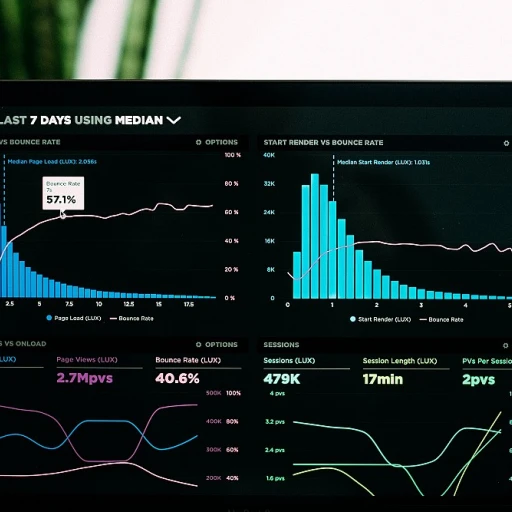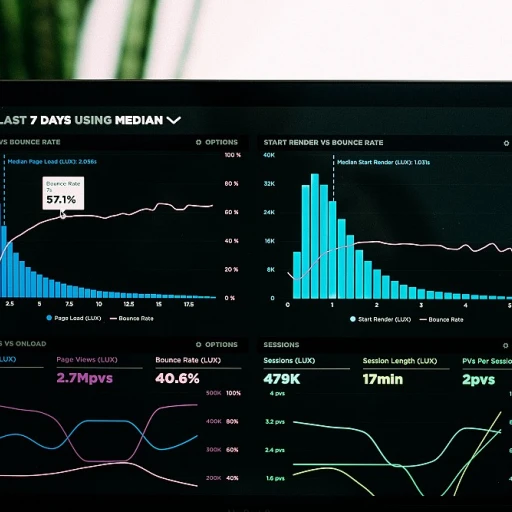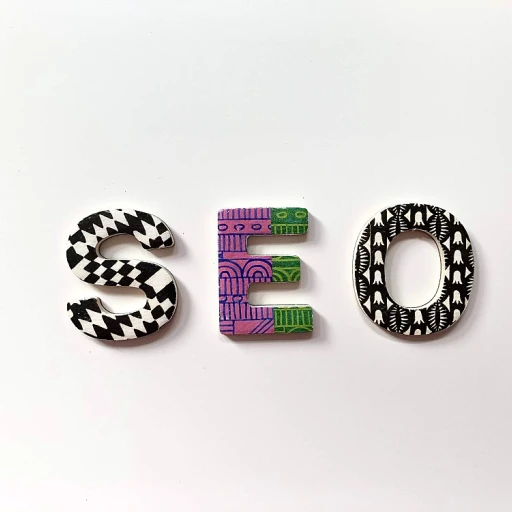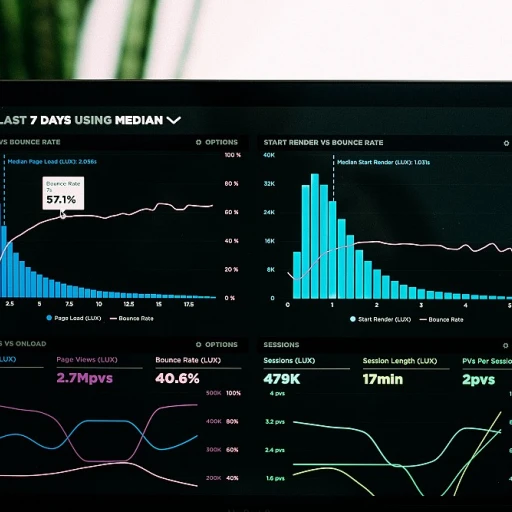How AI is Shaping SEO Content Creation
The Role of AI in Content Strategy Development
Artificial intelligence (AI) is revolutionizing the way businesses approach their search engine optimization (SEO) content strategies. As SEO continues to evolve, it's no longer just about keyword placement and backlinks. The integration of AI into SEO processes has introduced a data-driven and dynamic approach to content creation, aiming to deliver more relevant and personalized experiences for users.
One of the key advantages of AI in content creation is its ability to analyze large amounts of data quickly and efficiently. This means that businesses can identify emerging trends, understand user behavior, and predict future shifts in the market. By leveraging AI, content creators can draft data-backed strategies that align with both search engine algorithms and user preferences, leading to better visibility and engagement.
Moreover, AI tools enable the automation of repetitive tasks such as content audits and gap analysis. With these tools, businesses can continually refine their content strategies, ensuring that they remain competitive in a fast-changing SEO landscape. For example, AI-driven algorithms can sift through existing content to identify underperforming areas and suggest improvements based on current SEO standards.
The versatility of AI in content creation extends to language processing as well. Natural Language Processing (NLP) capabilities allow AI to understand context and sentiment, making it easier to generate content that resonates with readers while adhering to SEO best practices. This aspect of AI is particularly useful in maintaining a consistent brand voice and ensuring that all content across various platforms is cohesive and effective.
For more insights on how AI is transforming SEO strategies, check out this
informative article on AI and SEO strategies.
In the subsequent sections, we'll explore specific AI-powered tools that elevate the effectiveness of SEO optimization, as well as how data can be leveraged to devise intelligent keyword strategies. However, an in-depth understanding of AI's influence on content development is the first step toward a decisive strategy that incorporates modern technology for enhanced search engine results.
Embracing Intelligent Tools for SEO Success
To stay ahead in the competitive landscape of search engine optimization, businesses are increasingly turning to AI-powered tools. These sophisticated systems have the ability to analyze vast amounts of data with unmatched accuracy and speed, allowing for more dynamic and efficient strategies. Whether you're handling large-scale websites or niche content, AI tools can streamline your SEO efforts significantly.
Automating Content Optimization
One of the hallmark advantages of AI in SEO is its capacity for automation, particularly in content optimization. Using machine learning algorithms, these tools can assess content performance, identify the most effective keywords, and suggest improvements to enhance visibility. This not only saves time but also ensures your content is consistently aligned with current search engine updates.
Tailoring AI Tools to Your Needs
The market offers a plethora of AI-powered SEO tools, each designed to cater to specific aspects of optimization. From natural language processing applications that enhance content readability to analytical platforms that track and predict search trends, the potential applications are vast. To maximize your strategy, it is crucial to choose tools aligned with your goals and operations.
Incorporating AI-powered tools into your SEO process is more than a technological upgrade—it's a strategic enhancement that can elevate your outcomes. For a deep dive into practical applications, check out our detailed guide
here."}
Leveraging Data for Effective Keyword Strategies
Data-Driven Insights for Keyword Mastery
In the realm of SEO, keywords have long been the cornerstone of content strategy. However, with the advent of artificial intelligence, the approach to keyword research and implementation has transformed significantly. AI empowers marketers to go beyond traditional keyword research, diving into a pool of data-driven insights that enhance precision and effectiveness.
AI tools analyze vast amounts of data to uncover hidden patterns and trends, enabling businesses to identify not only the most relevant keywords but also long-tail variations that might otherwise be overlooked. These tools can process user intent, search trends, and competitive analysis, offering a comprehensive view that informs strategic decisions.
One of the key advantages of leveraging AI for keyword strategies is its ability to adapt to the ever-changing search landscape. By continuously analyzing data, AI can predict shifts in user behavior and preferences, ensuring that your content remains aligned with current trends. This dynamic approach allows for a more agile and responsive SEO strategy, keeping your content relevant and visible.
For those looking to delve deeper into how semantic search and artificial intelligence are reshaping SEO, explore this insightful resource. It provides valuable context on the evolving role of AI in understanding and leveraging user intent.
As you craft your SEO content strategy, integrating AI-driven insights into your keyword planning can significantly enhance your ability to connect with your audience. By embracing these advanced technologies, you position your content to not only reach but also resonate with your target market.
Enhancing User Experience with AI-Driven SEO
Transforming User Experience with Intelligent SEO
The integration of artificial intelligence into search engine optimization has revolutionized the way we approach user experience (UX). With the continuous evolution of AI, businesses now have the tools to better understand and cater to the needs of their audience, leading to an enriched user journey and increased engagement on their platforms.
AI-driven SEO practices allow for the dynamic personalization of content, which means that websites can now adjust the displayed content based on a user's behavior, preferences, and search patterns. This personalized touch not only enhances engagement but also boosts conversion rates as users find more relevant information tailored specifically for them.
In addition to content personalization, AI tools are instrumental in optimizing website structure and navigation, which are crucial aspects of UX. By analyzing user interactions and search intents, AI can provide actionable insights to refine site maps, streamline workflows, and ultimately make a website more intuitive to navigate. As a result, users spend more time on the site, reduce bounce rates, and improve overall satisfaction – factors that favorably impact SEO rankings as thoroughly discussed in the earlier parts of this series.
Moreover, AI's capability to process large volumes of data can be harnessed to predict user behavior and anticipate trends. This foresight empowers businesses to preemptively tailor their content strategies and stay ahead in the competitive digital landscape. By aligning content with predictive insights, brands can maintain a continuous connection with their audience and ensure that their SEO strategies remain future-proof.
As we explore the potency of AI in SEO, it becomes evident that enhancing user experience is just the tip of the iceberg. The seamless integration of AI technologies in SEO not only refines how consumers interact with digital platforms but also sets the stage for more innovative engagement strategies. As you delve deeper into AI-powered techniques, consider how best to utilize these insights to optimize your approach and stay ahead of the curve in user-centric SEO strategies.
Case Studies: Successful AI-Driven SEO Strategies
Real-World Examples of AI-Enabled SEO Success
AI is reshaping the landscape of SEO content strategy, offering businesses innovative tools and strategies for success. To truly appreciate AI's impact, it's illuminating to explore real-world case studies where AI-driven SEO strategies significantly transformed businesses.
One notable example is from the e-commerce giant Overstock, which embraced AI to supercharge its SEO efforts. By employing machine learning algorithms to analyze vast amounts of consumer data, Overstock was able to tailor its content and product recommendations, resulting in a significant boost in organic traffic and conversion rates.
Similarly, the popular travel site Expedia made use of AI-powered tools for SEO optimization to enhance its search rankings. By leveraging AI to understand user behavior and intent, Expedia was able to optimize its landing pages, leading to improved user engagement and ultimately higher bookings.
AI has also enabled smaller businesses to achieve impressive results. An online boutique clothing store utilized AI to refine its keyword strategies, tapping into niche markets and improving SERP rankings. By automatically adjusting keywords based on current trends and user queries, the store experienced a marked increase in organic traffic and sales.
These cases exemplify how businesses, regardless of their size, can harness AI-driven SEO to achieve measurable success. As AI continues to evolve, the potential for creativity and efficiency in SEO strategies will only grow, offering companies an edge in an increasingly competitive digital landscape.
Future Trends in AI and SEO
Evolving AI Technologies in the SEO Landscape
As AI technology continues to advance, its impact on SEO strategies is becoming increasingly significant. With each new development, AI tools are transforming how businesses approach their search engine optimization, allowing for more refined and effective strategies.
One of the most exciting future trends in AI and SEO is the continuous improvement of natural language processing (NLP) algorithms. These advancements enhance an AI's ability to understand and predict human language patterns, leading to more accurate keyword analysis and content optimization. As a result, marketers can expect their content to resonate more effectively with their audience, ultimately improving their search rankings.
Another intriguing trend is the increasing integration of predictive analytics in AI-powered SEO tools. This technology can help predict user behavior and search trends, allowing businesses to stay ahead of the curve. By anticipating what users will be searching for, companies can tailor their content strategies to meet these needs proactively rather than reactively.
Moreover, the rise of voice search continues to shape the future of SEO. As smart speakers and voice assistants become more prevalent, AI tools are adapting to optimize content for voice queries. This shift requires a focus on conversational keywords and a more in-depth understanding of user intent to ensure visibility in voice search results.
AI is also expected to enhance personalization in SEO efforts. By leveraging big data, AI can create personalized user experiences, providing tailored content that meets individual preferences and behaviors. This approach not only improves user engagement but also boosts SEO performance by aligning with search engines' emphasis on user satisfaction.
In summary, as we look to the future, AI will undoubtedly drive more sophisticated, personalized, and effective SEO strategies. For businesses eager to harness these advancements, staying informed and adaptable is key to maintaining a competitive edge in the evolving digital landscape.













